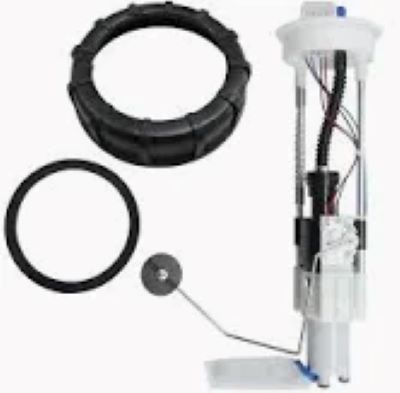Selecting the Right Fuel PumpFuel pumps are of several types, and they cater to different vehicle needs depending on the fuel economy level or performance. There are basically two kind of fuel pumps: mechanical and electric, but both types offer advantages either type can use.
It is important to note that mechanical fuel pumps can be found in hemi displacements. Carburetors pump at lower-pressure, often between 4-6 psi which are exactly what these pumps were designed for. Mechanical pumps are simple, robust devices needing little disassembly during service with a typical replacement cost between $100 and 200. Especially among classic car owners or those with older engines, the primary use of a mechanical Fuel Pump is that it delivers enough fuel without needing the super-high pressure levels required by modern-day high-pressure direct-injection systems. Mechanical pumps, on the other hand, are driven directly by engines and become dependable for separate class of engine that they're meant to power.
Unlike mechanical pumps, electric fuel pumps are used in normal vehicles with, modern-day arrange shot. Whether they are adjustable or not, these pumps deliver the high pressure which fuel injectors require to function—typically something in excess of 30 – 70 psi range—to guarantee correct delivery and therefore combustion. As fuel systems evolved, consistent and better-flowing pumps were developed in order to adequately feed the bigger engines of modern times.-- Electric pump design that is mounted inside a tank.Fields are required Thank you for postingReviewTitleTick Mark 1Add your star rating∗Star Rating: StartWriting--Electric pump help keep smooth flow by keeping up constant core drive needed to save current specifications for best results. They are being used in new cars, and they offer significant advantages over mechanical while costing not much more than a replacement pump ($200 to $400).
For vehicles that are equipped with customized engines or high-performance modifications, there are also top performing electric fuel pumps. This helps these pumps deliver higher flow rates—up to 255 liters per hour (LPH) or more, depending of the model—to keep up with the needs of turbocharged and supercharged engines. Performance testing shows that large high-output electric pumps can provide up to 30% more fuel flow than standard electric pumps which will add surplus of horsepower and improve general engine performance.

The selection between these pump types is related to the fuel delivery requirements that a vehicle may have and also concerning their maintenance. Although electric pumps provide efficiency for contemporary engines, they experience more wear than mechanical ones because of their intricate fabrication and fuel contact. Electric — 100,000–150,00 miles; mechanical as long as it is maintained (i.e. an old car could see infinite life) While a direct electric pump can function without any maintenance, the one disadvantage that it has been expensive components to replace over time — especially if you never change your fuel filters at regular intervals as blocked up filter force them works harder and cuts its life often costing an extra 20 percent each year.
Electric pumps are generally better at supporting fuel efficient and emission controlled operation. A study was carried out on automotive emissions and it has also proven that cars with an electric fuel pump emit 15 % fewer pollutants due to accurate fuel metering thereby enhancing complete combustion. Electric pumps are likely to be an advantage for drivers looking at a balance between power and environmental stuff, or really anyone who wants extra cooling juice flowing through their car.
The most appropriate Fuel Pump option varies depending on the engine type and driving requirements. Old school or carbureted engines should use a mechanical pump, while modern fuel-injected systems can benefit from an electric one. If that describes you, the best option will be a high-performance electric pump, which is capable of higher flow rates to deliver more fuel for your modified engine. Each of these types offers some benefits the rest do not have and hence you need to match your pump type with what the vehicle needs for top performance.